Growing up FC Barcelona – Spotlight Interview With Marc Segarra
Working with FC Barcelona to help bring high-quality soccer to the USA, ISL Futbol is bridging the gap for aspiring youth soccer players who want to learn more — and perhaps even hope to take their talents to the professional ranks one day.
As an affiliate of FCBescola, ISL Futbol takes pride in developing youth players that not only are excellent on the pitch but off the field as well.
SoccerToday spoke with Marc Segarra, Co-Founder of ISL/Head of New Ventures Recognition, about the goals of ISL Futbol and his experience in the game.
Youth Soccer News: Founded in 2013, ISL Futbol directly manages four FCBEscolas and a U.S. Soccer Development Academy program — ISL FC.
Founded by Alex Isern, Marc Segarra and Mac Lackey, these three soccer lovers combined their visions to change the American game by creating a link between the best of Barcelona and the United States.
Now, as the largest FCBEscolas partner of FC Barcelona in the United States, ISL brings the culture, talents, practices, and methodologies that developed players like Lionel Messi and Andres Iniesta to youth soccer players of all levels — inspiring new fans and developing talent.
With offices in 3 states in the United States and Barcelona, ISL has the reach and scope to act as a pre-eminent advisor, owner and thought-provoking leader in the sport.
FCBEscola recently held tryouts in San Diego with hundreds of aspiring youth soccer players attending the events.
SoccerToday spoke with Segarra on his experience in the game and his plans for developing great soccer players.
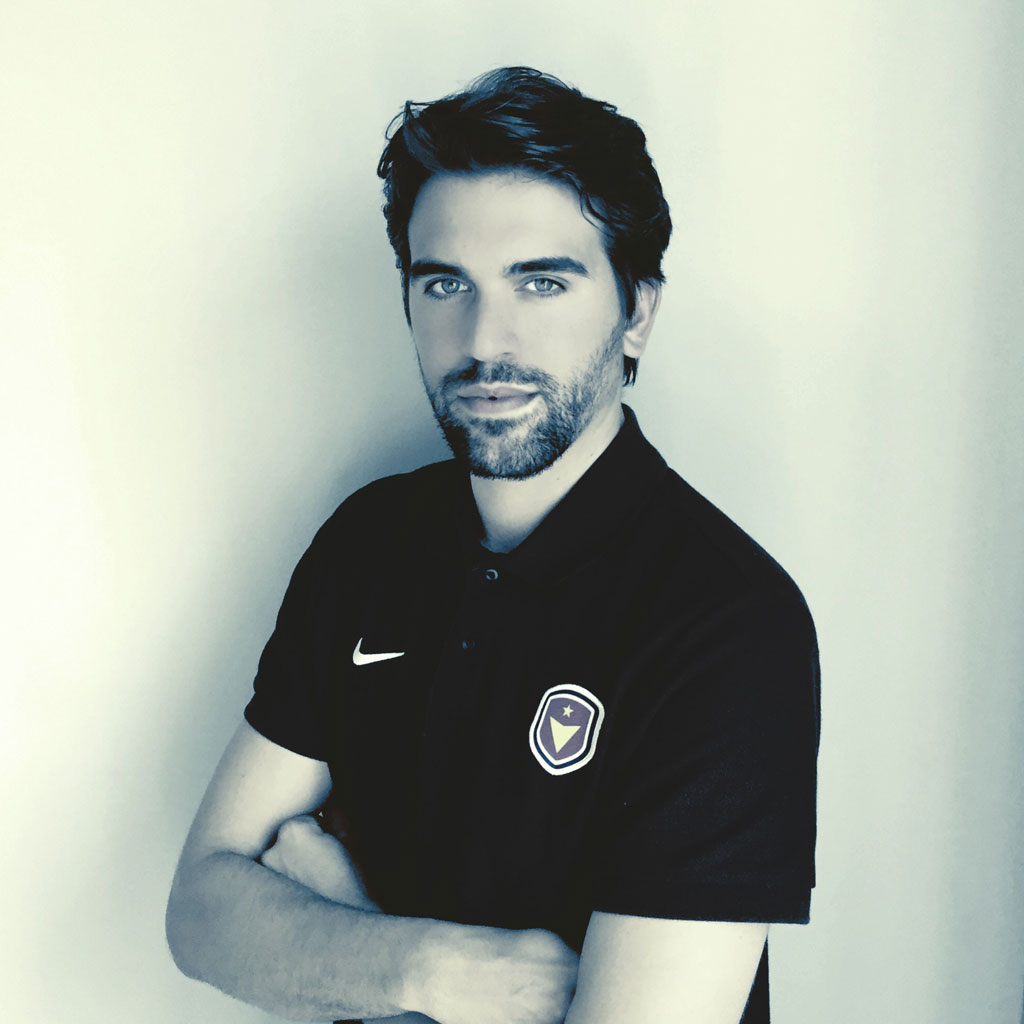
Diane Scavuzzo: How do you define the Barcelona Methodology?
Marc Segarra: The Harvard of soccer. Nowadays, very few on earth could provide a soccer education such as FCB where there is a prime balance between soccer and life skills education.
Diane Scavuzzo: Why launch Barcelona Escolas in the USA?
Marc Segarra: First of all, because of our passion is to provide the best opportunities for future generations.
The growth in youth soccer in America is impressive. In the last the last 10 years, there has been a real emerging soccer market — and, also because in the near future, the probability of finding talent is much larger than in any other market simply because of the sheer number of people who live in the States.
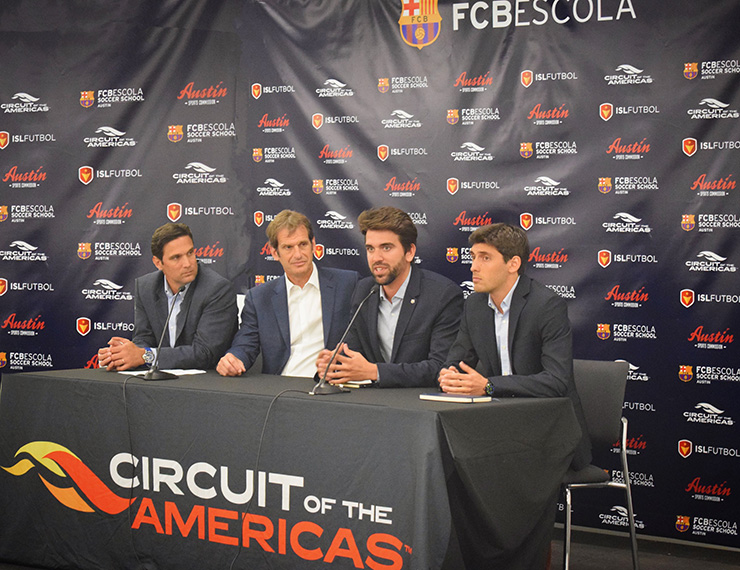
On top of that, we believe that exporting a system that has worked in the most competitive soccer environment on earth could be very beneficial for youth development.
So, trying to merge a country of athletes with a proven system like FCB is a recipe for guaranteed success.
So, trying to merge a country with tons of young athletes — with a proven system like FCB — is a recipe for assured success.

Diane Scavuzzo: Why, in your own words, do you think FCB is making such a strong outreach in the USA?
Marc Segarra: Size, potential, and talent. One of the largest countries in the world with a powerful economy, the USA is a world power in the development of athletes and it is a future niche for the best upcoming talent in the world.
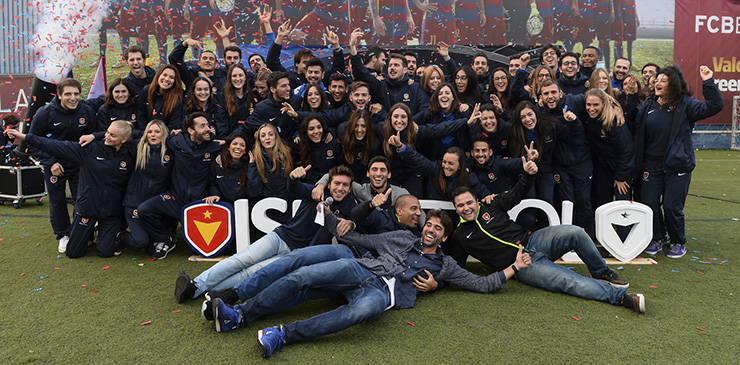
Diane Scavuzzo: How many programs do you have?
Marc Segarra: At the moment ISL directly manages four FCBEscolas and one U.S. Soccer Development Academy called ISL FC.
We are based in the largest soccer markets in America — we have the authentic FCBEscolas in:
- Illinois
- California
- Texas
- North Carolina
In the near future, we plan to have five schools in other strategic locations.

Diane Scavuzzo: What are the differences between them?
Marc Segarra: Even if our system and Barcelona methodology will always remain untouchable, we normally adapt our FCBEscola model depending on the city.
In some markets, we serve as a training program for players and in others areas, as a supplemental alternative to local clubs. There are slight differences depending on the market.
Diane Scavuzzo: Why come to San Diego?
Marc Segarra: San Diego is strategically ideal for us to run our logistics and operations. Geographically it is perfect because of the proximity to other countries.
In terms of demographics, San Diego is very similar to Barcelona.
The influence of international and Hispanic population; the high number of DA clubs in the area; the talent pool of elite players, the opportunity to work with San Diego Unified Schools are just a few of the many reasons kicking off an FCBEscola in San Diego just makes sense.
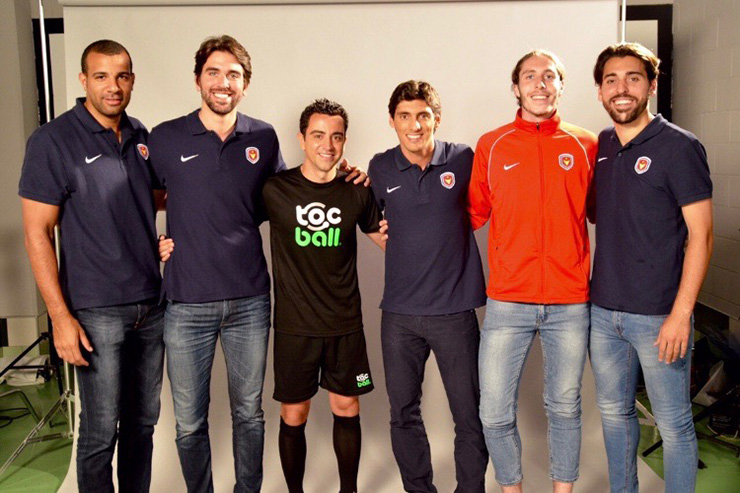
Diane Scavuzzo: Do you have programs for elite players as well as beginning youth soccer players?
Marc Segarra: Yes, we do.
Our intention is to provide the best training methodology to players from different levels.
All the sessions and training will be adapted depending on the level and ability of the players.
Diane Scavuzzo: Who should come to your training?
Marc Segarra: Anybody with the willingness to learn from the best professionals in the soccer industry.
Who else could coach a young player wanting to learn better than the system that has trained the best soccer players in the world?
Diane Scavuzzo: Does each location have a Technical Director from La Masia?
Marc Segarra: Yes, it does. All the Escolas are managed and supervised directly by a professional who has been involved in the FC Barcelona Academy.
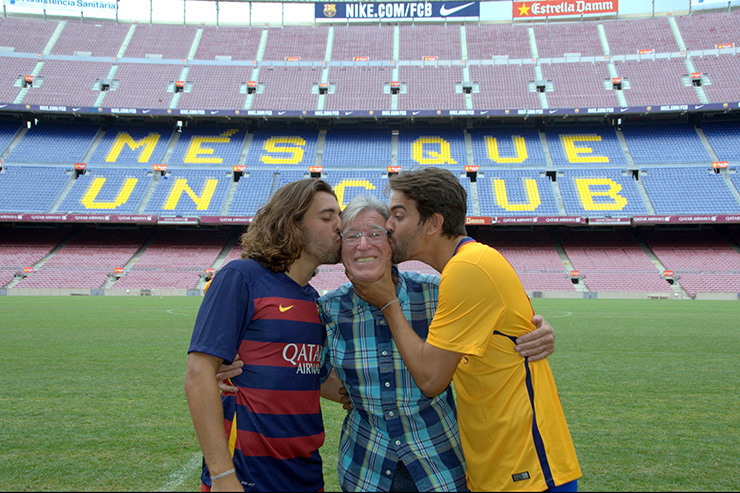
Diane Scavuzzo: What are your goals?
Marc Segarra: In terms of our FCBEscolas Academies, all ours goals are based around the players.
The main goals are to work to accelerate our players’ development, activate their talent, enhance their confidence and help players achieve their goals on and off the field by applying our core values and methodology.
If you refer to ISL’s or my personal goal they are slightly different. We want to become a reference in the sports industry by connecting emerging soccer markets with globally recognized soccer institutions.
We are achieving this by providing different programs that range from sports consultancy, youth development and commercial activation for clubs and professional players.
My dream would be that from one of our programs we could find a superstar and also build my own professional club.
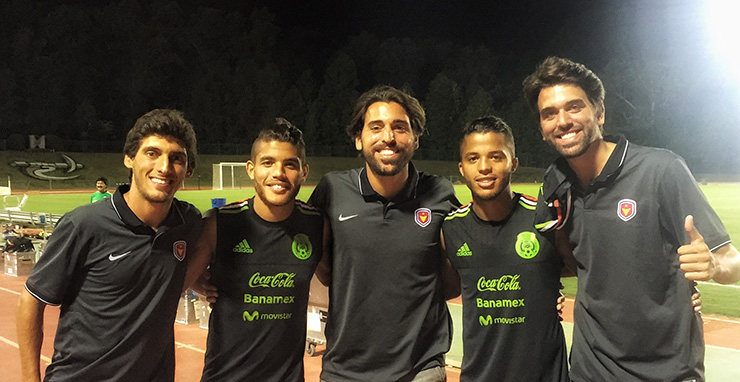
Diane Scavuzzo: Does FC Barcelona believe American youths have potential?
Marc Segarra: Yes they do.
Diane Scavuzzo: Are you scouting youth soccer talent?
Marc Segarra: We train players and indirectly scout talent.
Diane Scavuzzo: If you identified a player of amazing talent, could you help that player have a chance to train in Spain?
Marc Segarra: Of course.
ISL wants to become the pipeline between the talented American soccer player and a professional club in Europe.
Our platform, unique connections, and level of professionalism allow us to do this naturally.
We currently have partnerships with some of the biggest soccer agencies in Europe. Such as Lifepro, who represents Marcelo from Real Madrid, The Player Management, who represent Thiago from FC Bayern and Rafinha from FC Barcelona and other also other good connections with free agents.
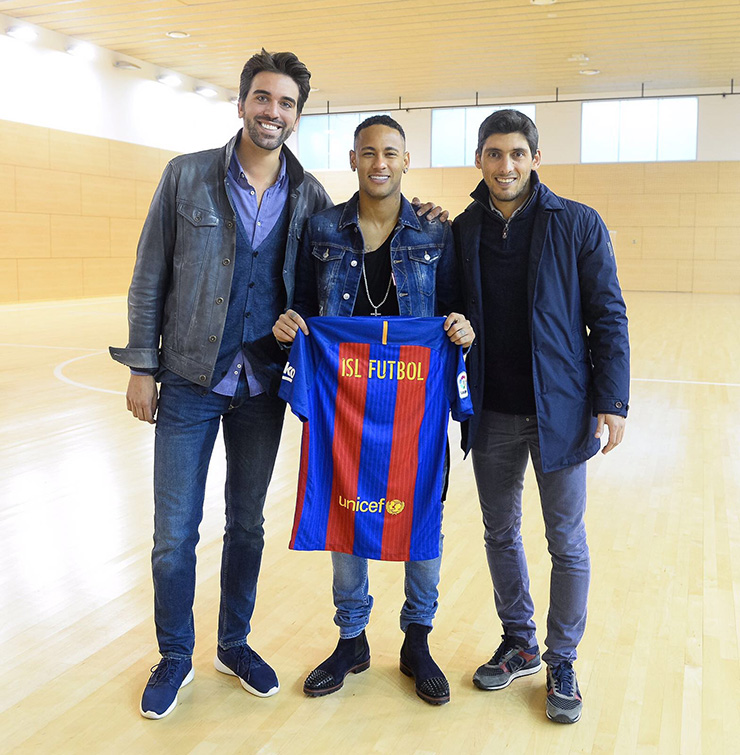
Diane Scavuzzo: What do you look for in a player?
Marc Segarra: Leadership, attitude, respect, persistence, ambition, humility, teamwork and passion.
I have seen it all, super talented players with the wrong attitude and core values that failed to become professional players and average talented players that made it because an agglomeration of all the attitudes I mentioned above.
Becoming a professional is secondary, what really matters is being a good human being. One day a professional player will become a former player. Then what happens if they have not been taught how to be a good person? They will probably fail in life.
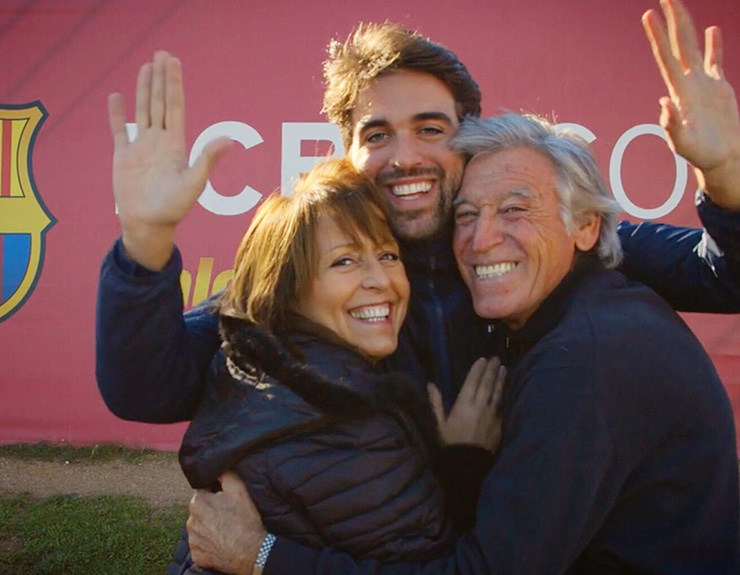
Diane Scavuzzo: What are the biggest mistakes most youth soccer players in the USA make?
Marc Segarra: I will not say mistakes, I would say bad habits or improbable base.
With the current Recreational system in the USA. it is very difficult to get the right development from an early stage. Therefore, you always start working with players that acquired bad habits.
Diane Scavuzzo: What would happen if a Spanish teacher that speaks broken English tries to teach you proper English?
Marc Segarra: Great question — well, the answer is very simple. You will learn how to speak broken English not proper English.
The same applies to soccer or any other profession. If you start learning from somebody who is not prepared to teach (for example a parent who has no idea about soccer), you are more likely to fail or not learn from a proper professional who has prepared to do so.
Nowadays, especially the new generations carry the same level of technique and skills than in any other country. However, there is a big room to work on tactical aspects and the ability to understand the game.
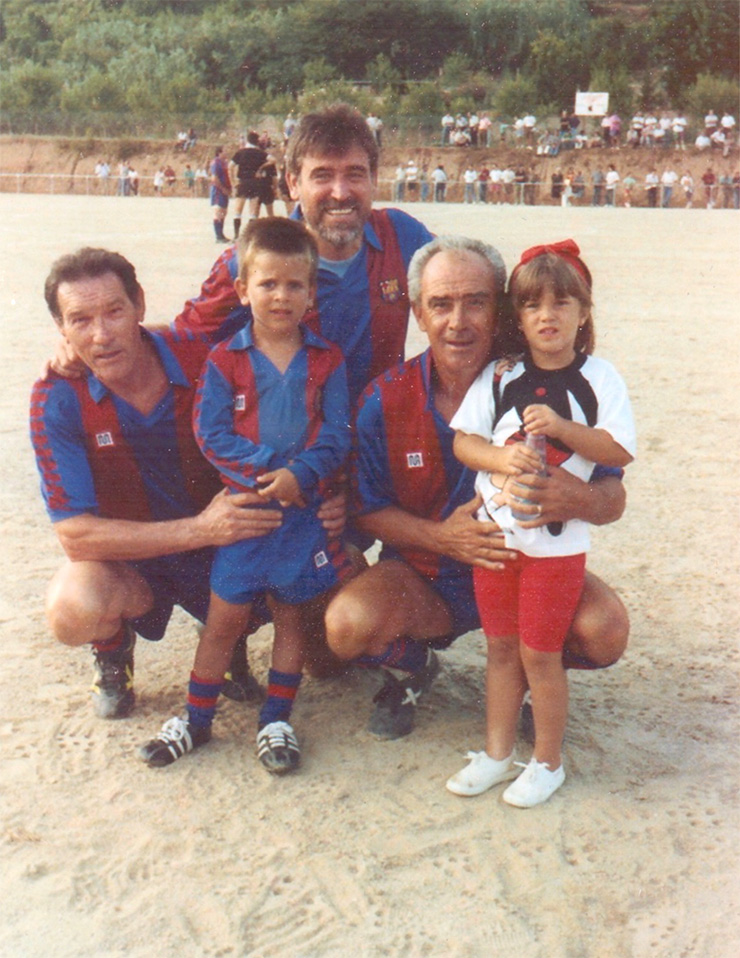
Diane Scavuzzo: As a youth soccer player in Spain — at 16 years old for example — what were you like? Can you share a bit of your journey?
Marc Segarra: The I am the perfect example of somebody who could have made it as a professional, but I failed because I did not have the right attitude.
I want to make sure other talented players do not fall victim to this.
On top of that, my club did not follow a specific methodology, therefore I had different coaches with completely different visions every year.
However, my little brother, a much less talented player but with the right aptitudes, did make it. Thanks to his experience, I could now visualize, locate and work on those weaknesses to make sure other players do not commit the same mistakes I did.
I love to run into a “mini-me” because it is so easy to redirect them to follow the right pathway.
But, I still made it to a Division I school in South Carolina named Winthrop University.
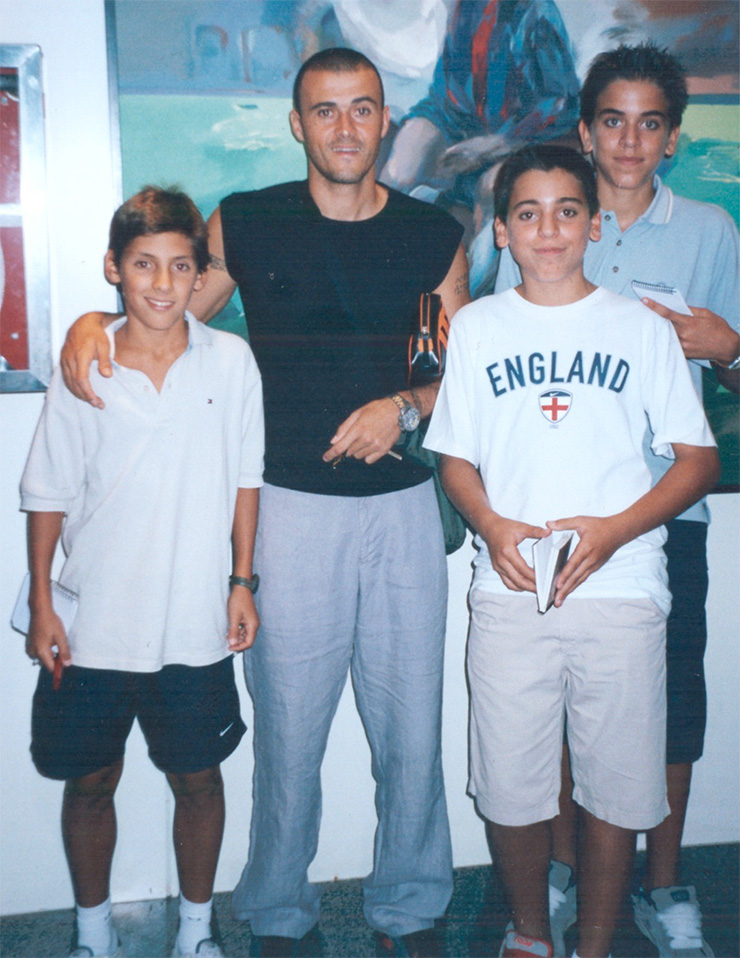
Diane Scavuzzo: You are from a family of soccer players?
Marc Segarra: We have it in our blood. Our family has a long history in soccer. Starting from our grandad, Joan Segarra, considered the greatest captain of the history of FCB, continuing with my dad who has also played professionally in FCB and who is currently involved in the Former Players Association of the club.
Finishing with my brother who has played also in the FCB system with players such as Thiago Alcantara, Marc Bartra, Jonathan Dos Santos, Sergio Roberto and many others who are now playing on the top level. We are lucky enough to say that most of the teammates along the way remain friends and some of them became business partners or clients.
Diane Scavuzzo: You have grown up in the Barcelona world — what was it like?
Marc Segarra: The dream for any guy who loves soccer. Being able to watch Messi, Ronaldinho or some of the players in the world every two weekends is something that I will never forget. On top of that, the food and the options that Barcelona provides to you are unlimited.
Diane Scavuzzo: How has it shaped your life today?
Marc Segarra: As any individual, I believe your hometown really marks who you are. However, I truly believe that my family was the one who shaped me the way I am. I come from a very humble environment. At times we had a lot and sometimes nothing. That really helped me understand that you have to remain the same person no matter the circumstances. My family taught me how to overcome any barrier that comes along the way. Fear is not a possibility in my career.
My daily motivation and motto is to be able to make my family and co-workers proud. I want to be able to provide to them the same way they provided for me. I am very lucky to be able to work with FCB and call my best friend Alex Isern my partner. I have a family and group of friends that no matter what happens they will always be there. What else could you ask for?
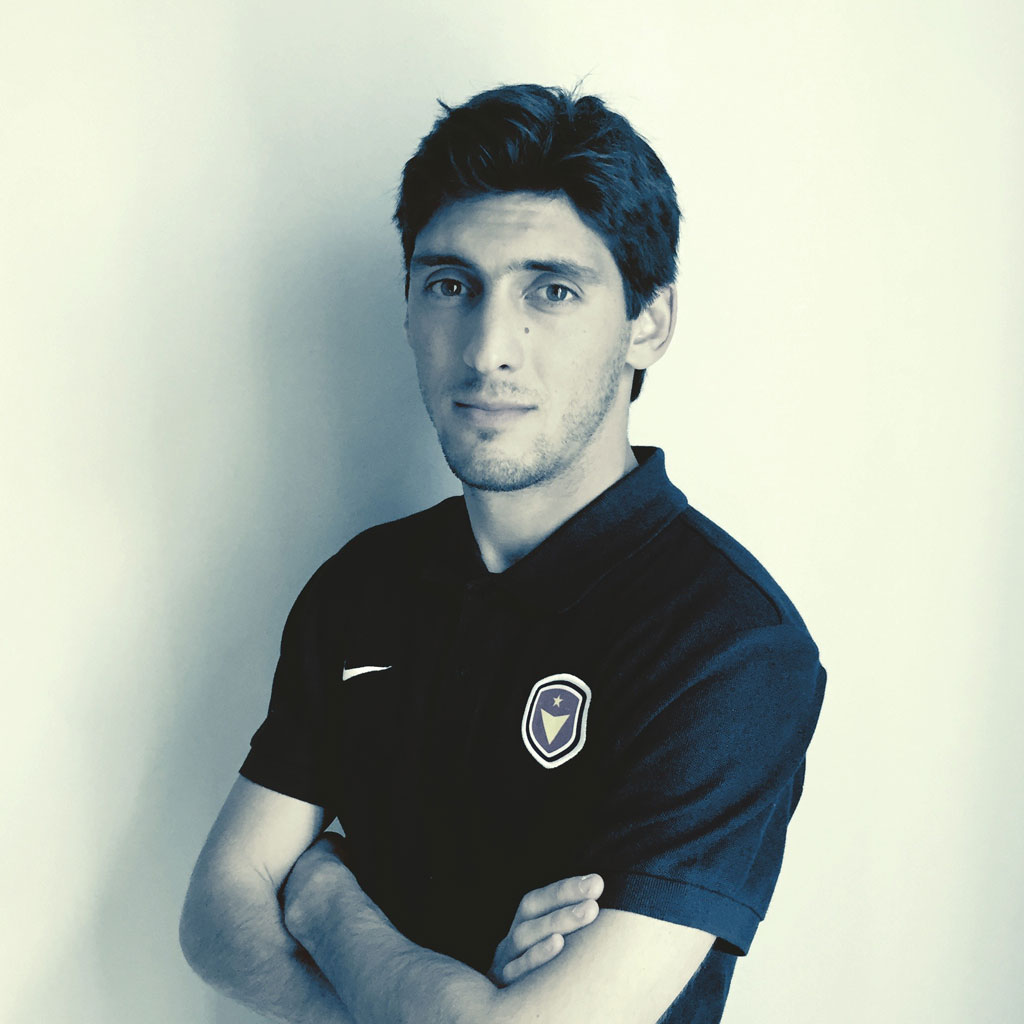
Diane Scavuzzo: How important is winning?
Marc Segarra: Winning is not the main priority. However, developing and overcoming yourself as a human and being able to apply everything that you learn on the field off the field is key. I learn how to be humble, being an integral person, respectful to others, a good teammate, ambitious and knowing that nothing comes without putting effort through a soccer ball.
Diane Scavuzzo: Do you believe a winning mentality can be nurtured? Do you think the USA will ever win a world cup?
Marc Segarra: America could achieve anything they want. If I have to bet, I would bet for America to win the world cup in the next 16 years.
Soccer is changing in America.
The big organizations such as the NSCAA are doing a great job to provide a great coaching education (key to provide good coaching to players and develop them), there are platforms such as USSDA and US Club Soccer that truly care about player development.
America will do great as long as it continues to offer a soccer market with free competition, non-monopolized and non-politicized markets.
Trying to find the balance between development and purely business is key. To this day it is unbalanced.
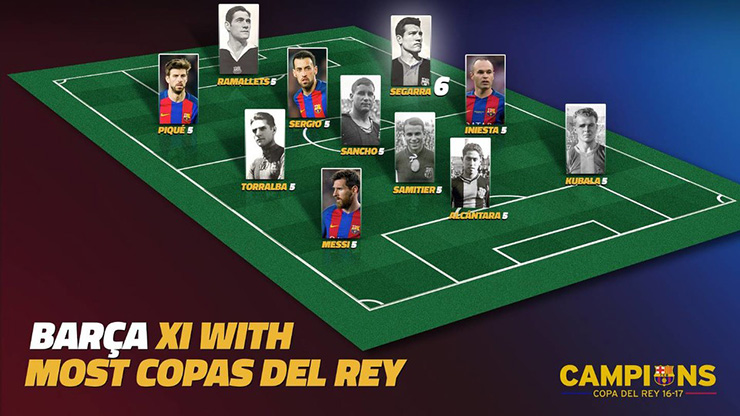
Diane Scavuzzo: How important is the USA as a world soccer market?
Marc Segarra: Nowadays it is okay. In the future, it will be a leader.
Diane Scavuzzo: What do you think of the youth soccer landscape in the USA? Does it have the best interest of the player at heart?
Marc Segarra: Let’s explain it with SWOT analysis:
Strengths: Size, potential, resources, the pool of talent and willingness to be the best at everything.
Weaknesses: The motto is the money not the development; recreational programs staff (poor base); access to facilities (controlled by public institutions but managed by few clubs); access to competition (state associations) is difficult to not say impossible and not unified (numerous leagues).
Opportunities: Investing in coaching education; learning from local and international experts; free competition and hopefully one-day competition is regulated everything under one roof, USSDA, NSCAA, MLS, college system.
Threats: Politics, monopoly, selfishness, nonprofits, the board of directors, money and conflict of interest.
Money comes first, development and interest for youth come second. The soccer industry in America is a beast.
The second part of this exclusive interview with Mark Segarra will be published next week.







